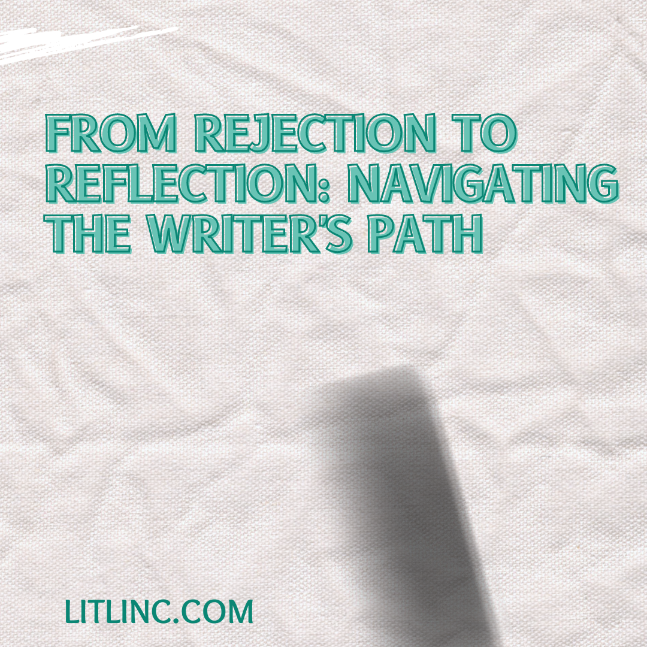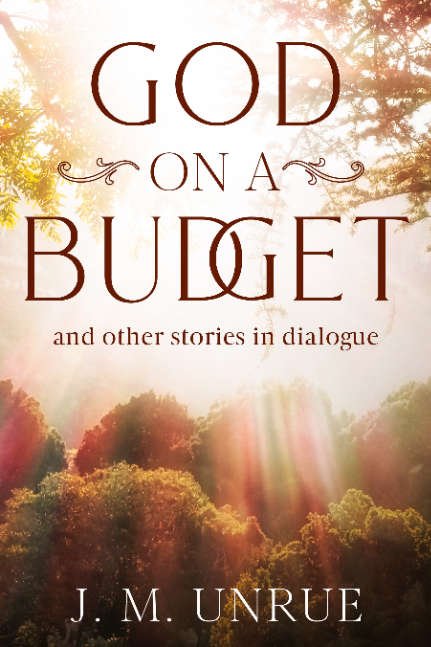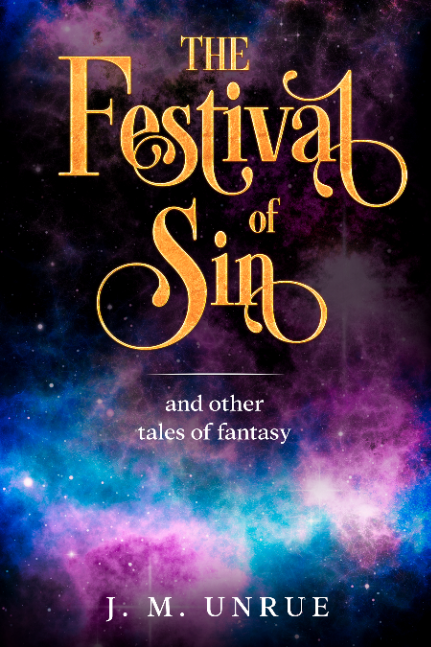Writing Process
Perseverance in Pages: Navigating Rejection and Encouraging the Aspiring Writer
For many aspiring authors, the dream of publishing a manuscript often collides with the harsh reality of rejection from publishing houses. This experience can be incredibly disheartening, casting a shadow of doubt over one’s creative abilities and aspirations. However, it’s essential to recognize that rejection is a common, even necessary, part of the writing journey. This article delves into the world of manuscript rejections and offers guidance and encouragement for writers facing this challenge.
Understanding the Nature of Rejection
Rejection is an inherent aspect of the literary world. Many now-celebrated authors faced numerous rejections before achieving success. J.K. Rowling's "Harry Potter," for example, was turned down by multiple publishers before finding a home. Understanding that rejection is not a reflection of one's worth as a writer is crucial. Publishers reject manuscripts for various reasons, often unrelated to the manuscript's quality - market trends, publishing house capacity, and editorial preferences play significant roles.
Strategies for Dealing with Rejection
Embrace Feedback: If feedback accompanies a rejection, view it as a valuable tool for improvement. Critique can provide insights into your writing that you might have missed.
Diversify Submissions: Don’t put all your hopes into one publisher. Submit your manuscript to various publishers to increase your chances of acceptance.
Stay Informed: Keep abreast of market trends and publishers’ preferences. A manuscript might be rejected simply because it doesn’t align with current trends or a publisher's focus.
Join Writing Communities: Engage with other writers who can provide support, advice, and constructive criticism. Understanding that others face similar challenges can be comforting and enlightening.
Keep Writing: Use the time during the submission process to start or continue other projects. This keeps your creative juices flowing and improves your craft.
Maintaining Motivation and Perspective
Set Realistic Expectations: Understand that rejection is common and does not equate to failure. It's a step in the process.
Celebrate Small Achievements: Whether it's completing a chapter or receiving constructive feedback, acknowledge and celebrate these milestones.
Remember Your Passion: Reconnect with the reason you started writing. Let your love for storytelling be the fuel that keeps you going.
Consider Alternative Publishing Routes: If traditional publishing doesn’t work out, explore self-publishing or digital platforms. These avenues offer more control and can be equally rewarding.
Stay Positive and Resilient: Cultivate a positive mindset. Believe in your work and your ability to improve it.
Facing rejection from publishing houses is a daunting aspect of an author’s journey, but it’s not the end of the road. By understanding the nature of rejection, employing strategies to cope with it, and maintaining motivation, aspiring writers can navigate these challenges. It’s important to remember that each rejection brings you one step closer to the right publisher who will see the value in your work. Keep writing, keep improving, and above all, keep believing in your story.
Something to Prove (Whoever said talk is cheap never had to write dialogue)
A question often overlooked before starting any writing project, though tacitly understood and relevant to the task, is What am I trying to prove?
Certainly, hopes for literary credibility, dreams of commercial success, the establishment of name recognition sufficient to generate interest for future projects, money (of course), all exist at the outset. These serve as both cause and effect—the impetus to continue, the culmination of plotting and planning and sheer mental effort, the enormous amount of energy and patience required, the reason for doing the damn thing in the first place.
Rarely would one in some still, quiet hour, perhaps in those early waking moments before the sun fully blooms, with that first cup of coffee to repel the last vestiges of sleep, and embracing the calm of a new day, turn to mind and think—
What am I trying to prove?
For me, and admittedly this is a vanity, I have always sought uniqueness, much to my detriment and dissatisfaction. There is nothing particularly ennobling in such endeavors. To attract a readership beyond a single story, a writer clings to a genre, commits to a style, becomes more proficient, and creates consistency in the hope of building a following.
What am I trying to prove?
Craftsmanship, certainly, an affection for elliptical phraseology and rhythmic syntax, a sardonic worldview (oh yes), and the virtue of sentimentality (I can’t seem to help myself). Beyond this—and in my own defense uniqueness is not simply being different—to attain and adhere to a self-subscribed quality level.
What I have grasped in my simple, ignominious way, is that uniqueness requires not only a host of tenebrous, almost otherworldly qualities, but advocacy from people who recognize this distinction, and exists beyond your Granny saying what a special boy you are, and is, in fact, as remote as it is indecipherable.
What am I trying to prove?
Several years ago, I wrote a short story about an imagined conversation between Jesus and Buddha in the afterlife—satire, mind you, though with a certain philosophical bent. I ultimately decided to employ dialogue only. I had several other stories, and set about writing them strictly in dialogue, just to see if I could, at least to my own satisfaction.
The result is my new book God on a Budget and other stories in dialogue. Who knows, maybe I’m onto something.
Still, I haven’t answered the question, and I suppose I should, if for no other reason than to articulate a purpose for such a purposeless exercise.
What am I trying to prove?
That in the effort to get it right, I have produced something unique. Granted, this is not qualitative assessment. This does not address a level of artistry or even soundness.
This simply means that I pulled it off and am (mainly) pleased with the outcome.
After all, we all have something to prove. Don’t we?
What an Ending!
When all the results are tallied, there are only three fundamental conclusions a writer can make to end a story—life is good, life’s a bitch, life is survivable.
People tend to like happy, feel-good endings, a portent of a promising future, everything all tied up nice and neat. The reason for this is simple. The real world is a messy place, rife with apprehension, a daily slog with gremlins hiding everywhere. We know we are being manipulated by the writer. We just don’t care. We need the elevation of spirit the same way people need church. A surrogate buoyancy to get us through the next round of stressors.
The adverse of this deals with the prospect of ultimate failure. This is honest in that such is the case for all of us at any given time, forays into discouragement that lay us low, strain our coping skills, and last as long as they last. The dishonesty stems from the pretense that a desperate end somehow equates to artfulness. A hero is only valuable as a dead one. Someone has to suffer interminably or the real world is left hungry for verity. We rejoin our lives with a skewed sense of gratitude. We leave an immaterial world with the belief that life is indeed unkind but at least we’re not on the receiving end—this time.
The last intends to illustrate that all life is a matter of perspective. Happiness is transient. Death can be a blessing. Nothing can truly thwart us as long as we have a happy face emoji at the ready. Optimism is not only a choice, but a way of life. Of course, so is pessimism. We spend our lives at the fulcrum, proactive or not, reactionary or inert. Careers sour, but there are new opportunities. Relationships fail, but new hope exists. Life is never one thing. Life is what you make it, unless you are a privileged legatee.
As a writer, I tend toward the first, though with qualifications.
First, the real world is for journalists, not fiction-writers. You want to pee in the pool, write an op-ed. Don’t bring doom and gloom to the table just because you think you’re a poet.
Secondly, regardless of attendant tribulations, there is always an exit. At least until you stop drawing breath. This is not optimism. This is reality. The ebb and flow of life does not allow for ultimate defeat—only evolution. One step forward, two steps back, still provokes a change-of-direction. Our existence on this earthbound plane is not static, nor will it ever be.
Lastly, hope is not a delusion. Hope exists because there is a frame of reference for enrichment. If there has ever been love, love is real. If there has ever been success, there is potential. If peace-of-mind has inhabited the psyche but for a fleeting moment, we may yet recognize sanity.
The fiction writer brings all of these elements to bear within the same story. What we have learned is that the true ending is never the last word on the page.
Beginning January 2, 2024, The Festival of Sin and other tales of fantasy will be on a temporary eBook promo for $.99.
Writing With Humor
Humor involves surprise and misdirection, and requires that the reader, or the listener, not take things too seriously. Consider the third verse in Bob Dylan’s song, “Memphis Blues” for example:
Mona tried to tell me
Stay away from the train line
She said that all the railroad men
Just drink up your blood like wine
An' I said, ‘Oh, I didn't know that,’
But then again, there's only one I've met
An' he just smoked my eyelids
An' punched my cigarette
At this point in the song, Dylan doesn’t wait for you to get the joke; he charges into the chorus, “Oh, Mama…” while his droll juxtaposition of “eyelids” and “cigarette” is just beginning to take shape in your mind. This sudden change of direction makes the refrain even wittier.
Many of us think of intelligence as the comprehension of truth and beauty, and that mirth lies in some separate region. I don’t. Humor expands the intellect, making it more complete and satisfying. Intelligence without humor is like a fine meal without wine, dessert or espresso.
In his poem, Ode on a Grecian Urn, John Keats penned the famous line:
“Beauty is truth, truth beauty, – that is all ye know on earth, and all ye need to know.”
To which I reply, “Without humour, ye be living in a wasteland.”
When writing fiction in the first person, internal dialogue reveals the inner workings of the protagonist’s mind and is a great place to inject comedy into the narrative.
Jesse Thorpe is the narrator/private detective of my mystery novel, Dead Down East. Jesse has a cheeky sense of humor, which he allows to leak out now and again, not just because he likes to have fun, but also to maintain calm when things get perilous. The first really dicey moment for him occurs in the middle of chapter four, as he is trying to worm his way through an FBI roadblock. In the first draft, I had chosen that moment to insert a rather lengthy internal monologue, to expose the witty side of Jesse’s nature. I was having so much fun with it that by the time I was done, it was almost fifteen hundred words long. And while I liked the tension it created by suspending the dramatic moment in mid-air—for several pages—eventually I decided that it would be more effective as a prologue for the book. This way, on the very first page, the reader gets a preview of the inner workings of Jesse’s mind, a snapshot of his modus operandi and a quick peak at his girlfriend.
What follows are the first two paragraphs of that prologue. I hope it serves to demonstrate the use of humor in writing, and, most of all, I hope it tickles your funny bone.
Apologies and compliments are two remarkably effective devices for disarming adversaries in life and hecklers in bars. If you consider the socially adept people you know, you’ll see that they use these two conversational tools frequently and with ease. I remember the first time it fully dawned on me how valuable they could be.
Angele and I had been dating for a couple of weeks. Our next planned event was scheduled for Saturday night. So I was a bit surprised when she arrived unexpectedly at my place on Tuesday evening. I guess she decided that there was something that couldn’t wait until the weekend. The moment she walked through the front door, I began to suspect what that “something” was. She had a gleam in her eyes that seared me from the inside of my nimble imagination right down to my insteps. I surmised that she was either ovulating, or she had a sudden urge for a tour of the Thorpe habitat. I began to mentally review the floor plan of the house. “Now, where is my bedroom?” I thought. “I know it was here this morning.”





